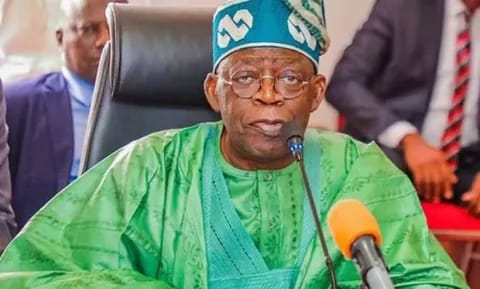The recently concluded 2023 presidential election in Nigeria has sparked a firestorm of controversy, as allegations of rigging, conflicts, and result manipulation run rampant.
Amidst this chaos, Peter Obi of the Labour Party emerged as the favoured candidate to win the election, only to face a surprising outcome when the Independent National Electoral Commission (INEC) declared Bola Ahmed Tinubu the winner.
Obi, unwilling to accept the anomaly, took his grievances to court, drawing attention to a crucial constitutional provision regarding the allocation of votes in the capital city, Abuja.
With the stakes high and tensions escalating, Tinubu, currently holding the presidential office, is resorting to threats of judicial anarchy if he is to be removed based on the 25% constitutional requirement.
The Unsettling Turn of Events
Nigeria, a nation yearning for transparent and fair elections, found itself embroiled in controversy during the 2023 presidential election.
As reports of irregularities flooded the media, it became evident that the electoral process had been marred by rigging, conflicts, and alleged manipulation of results.
Against this backdrop, Peter Obi, a prominent figure representing the Labour Party, gained significant popularity among the Nigerian electorate.
Supporters anticipated a well-deserved victory for Obi, hoping for a fresh chapter in Nigerian governance.
The Curious Case of Abuja’s 25%
However, the declaration of Bola Ahmed Tinubu as the winner by the INEC came as a shock to many, especially given Obi’s popularity.
Determined to address this glaring anomaly, Obi sought recourse through the legal system. One of his major points of contention was the constitutional provision stipulating that a presidential candidate must secure a minimum of 25% of the votes cast in the capital city, Abuja.
Obi claimed that Tinubu failed to meet this requirement, while he, himself, had obtained the necessary percentage.
The Threat of Judicial Anarchy
As the legal battle unfolds, the stakes grow higher, and the incumbent president, Bola Ahmed Tinubu, finds himself in a precarious position.
Refusing to accept the possibility of being removed from office due to the constitutional provision, Tinubu has resorted to threatening judicial anarchy.
The implications of such a stance are grave and could potentially destabilize the already fragile political climate in Nigeria.
The Future of Nigeria’s Democracy
The outcome of this legal dispute has far-reaching consequences for Nigeria’s democracy.
It serves as a litmus test, questioning the efficacy of the electoral process and the integrity of its institutions.
The Nigerian people, once again, find themselves at a critical juncture, with the hope of a transparent, accountable, and fair governance system hanging in the balance.
Conclusion
The 2023 presidential election in Nigeria has brought to light numerous irregularities and controversies that threaten the very foundations of the nation’s democracy.
Peter Obi’s decision to challenge the results in court, highlighting the failure of the declared winner, Bola Ahmed Tinubu, to secure the required 25% of votes cast in Abuja, has thrown the country into a state of political turmoil.
With Tinubu’s threats of judicial anarchy echoing through the corridors of power, the fate of Nigeria’s democracy hangs precariously.
As Nigerians eagerly await the resolution of this crisis, they hold their breath, hoping that justice and the will of the people prevail over political machinations and unrest.

